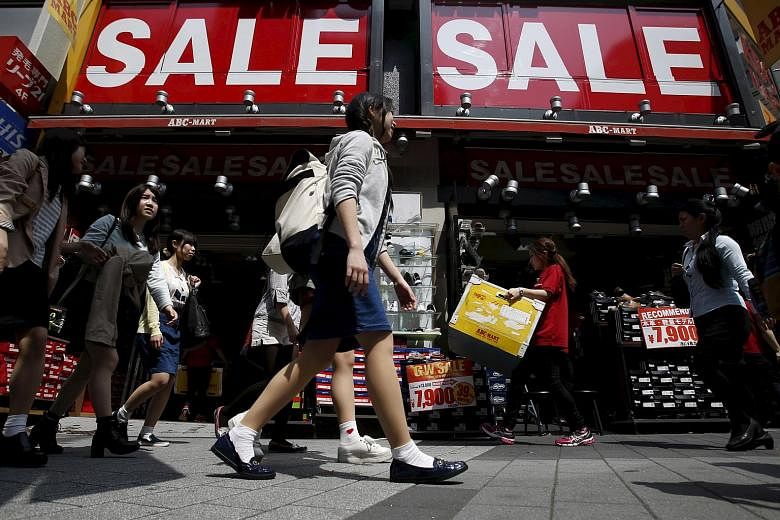TOKYO (AFP) - Spending by Japanese families increased in February for the first time in six months, government data showed Tuesday (March 29), but analysts said the rare good news for Prime Minister Shinzo Abe is likely to be short-lived.
Abe came to power in December 2012 vowing to rejuvenate the world's third-largest economy by ending deflation - a debilitating decline in consumer prices that has suppressed spending for years.
But the prime minister's eponymous "Abenomics" policies, which include the Bank of Japan buying massive amounts of government bonds and introducing a negative interest rate, have so far failed to achieve his goals.
Japanese household spending rose 1.2 per cent in February from the same month last year, the Internal Affairs and Communications Ministry data showed, the first gain since August.
The result surprised economists who had foreseen a 1.9 per cent decline. according to a Bloomberg market forecast.
Economists, however, likely overlooked the positive effect of the extra day in February due to Leap Year, said Taro Saito, senior economist at NLI Research Institute.
"The economy overall is levelling out," he told AFP.
The government last week said that Japanese consumer inflation remained stuck at zero in February for the second straight month as falling energy prices and a higher yen driving down the cost of other imports continued to weigh on consumer prices.
Also weighing on the economy are government plans to again raise the consumption tax from the current eight percent to 10 percent next year.
Powerful government finance mandarins say Japan needs the extra revenue to tackle the mounting national debts as the country ages and its population declines.
Going ahead with the plan is seen as likely to send the economy further into the doldrums, as did the last increase in April 2014.
Now, influential voices including Nobel Prize-winning economists Joseph Stiglitz and Paul Krugman, who both visited Japan this month, have urged Abe to postpone the increase.
Separate economic data released on Tuesday showed Japan's jobless rate came in at 3.3 per cent in February, slightly worse from 3.2 per cent in the previous month.

